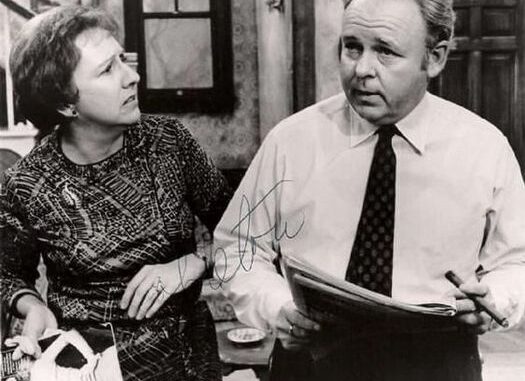
A Deeper Look into the Impact of Beverly LaSalle’s Storyline
All in the Family, created by the visionary Norman Lear, is often celebrated for its audacious exploration of pressing social issues, including race, antisemitism, and LGBTQ rights. Among the innovative characters introduced in this iconic sitcom, Beverly LaSalle, played by Lori Shannon, stands out as one of the first drag queens to appear on American television. Her character not only challenged Archie Bunker’s narrow-minded views but also fostered a profound exploration of bigotry, faith, and acceptance that resonates even today.
In its sixth season, Beverly first graced the Bunker household in the episode titled “Archie the Hero.” When Archie arrives home, boasting about his heroism in saving a woman from a medical emergency, he’s taken aback to discover that his “saved” passenger is Beverly, a vibrant drag queen in town for a performance. While Edith Bunker (Jean Stapleton) embraces Beverly with open arms, Archie’s initial shock reveals his ingrained prejudices, setting the stage for a complex character arc that would ultimately reshape his outlook on the queer community.
Beverly’s introduction was not merely a comedic device; it represented significant progress in the portrayal of LGBTQ characters on television. At a time when queer individuals were often depicted in a negative light, Beverly emerged as a warm and delightful presence, shattering stereotypes and inviting audiences to view her as a multifaceted person rather than just a caricature. Her friendship with Edith deepened throughout the series, culminating in her recognition as an honorary member of the Bunker family—a testament to the show’s progressive narrative.
Tragically, Beverly’s final storyline was a heart-wrenching pivot for the series. During the Season 8 Christmas special, Beverly, preparing for a performance at Carnegie Hall, becomes the victim of a brutal mugging alongside Mike (Rob Reiner). The fallout from her tragic death reverberates through the Bunker household, triggering an intense examination of grief, faith, and societal hate. Edith’s profound mourning and questioning of her faith represent one of the show’s most poignant explorations of loss, leaving viewers to grapple with the complexities of love in a world marred by violence and bigotry.
The two-part episode following Beverly’s death takes an unflinching look at how such tragedies impact personal beliefs. Edith, whose faith had been a cornerstone of her character since the show’s inception, openly questions the existence of a loving God in the wake of such senseless violence. This internal struggle resonates deeply, especially within the context of the queer community, and reflects ongoing conversations about faith and acceptance in a world that often feels hostile.
As Edith navigates her grief, the narrative eschews a neat resolution, reinforcing the gravity of her emotional turmoil. In a powerful scene during Christmas dinner, despite Archie’s attempts to restore her faith, Edith’s heart remains heavy. The episode concludes on a nuanced note, with Edith leading grace and expressing gratitude for her family, yet her struggle with the profound loss of Beverly lingers, illustrating the complexity of reconciling love with the harsh realities of life.
Beverly LaSalle’s arc serves as a pivotal moment in All in the Family, marking one of the first positive representations of a drag queen on television. Her tragic fate not only impacted the characters within the show but also left an indelible mark on audiences, prompting critical discussions about acceptance and the human condition. This exploration of faith, love, and societal hatred remains as relevant today as it was when the show first aired, solidifying All in the Family‘s legacy as a groundbreaking force in television history.
